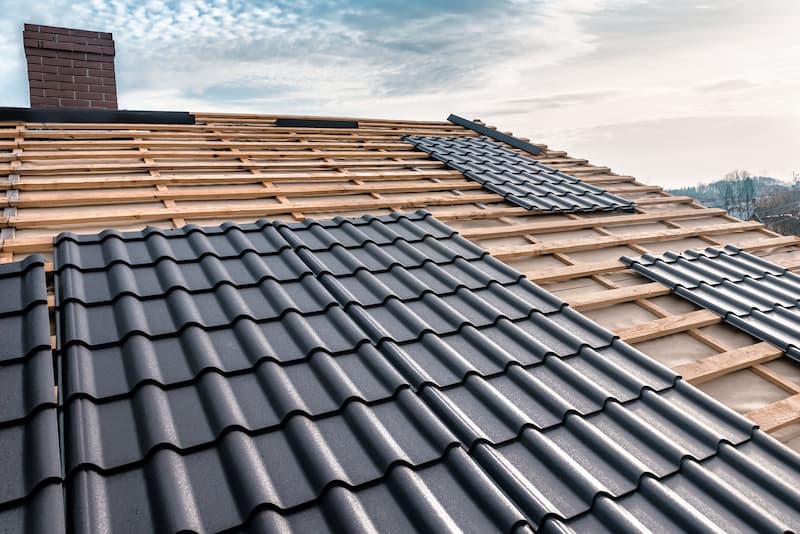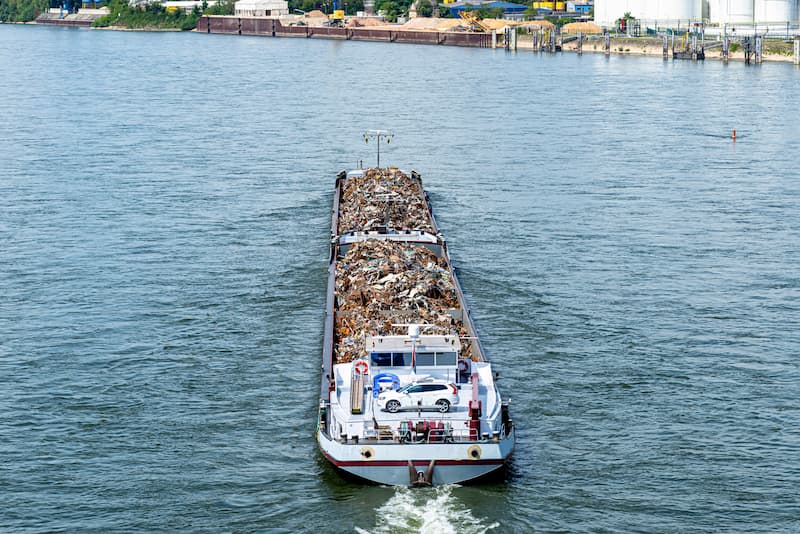Metal has been used for centuries in the construction of many buildings and structures, and as we turn to more sustainable resources, the popularity of metal is only increasing. It provides a valuable resource for many building and renovation projects, but what about scrap metal?
As scrap metal specialists, we will be exploring the uses of scrap metal within the construction industry and the trends regarding this vital material.
The Uses of Scrap Metal in Construction
Scrap metal is a valuable commodity within the construction industry and offers many benefits within projects and innovations worldwide. Once scrap metal is processed and melted down into reusable materials, it can help reinforce concrete structures such as buildings, bridges and highways. When it has been through its recycling process, steel is often a common material found to support forms like these. Due to its strength, durability and fire resistance, steel is also used as structural support for many buildings. These can be in the form of beams hidden within the brickwork or even showcased to create an industrial aesthetic for a space.
Other types of scrap metal, such as aluminium and copper, can be used for roofing material. Aluminium is very lightweight, so it helps minimise the subsidence of a property, which can often happen when using heavier materials such as lead. In addition, it can offer a very modern finish to a property whilst being low maintenance and cost-effective compared to alternative roof options. The are many uses for recycled metal in the construction industry, including decoration and cladding for buildings, whilst also having significant benefits when used as a framing material for studs.
Overcoming Supply Issues of Metal in Construction
During the COVID-19 pandemic, the construction industry, like most industries, struggled to source raw materials for their work. This lack of material led to long delays in many developments and saw a lot of companies losing out on valuable income from these developments. These issues faced by the construction held went on for a long period of time, which encouraged the sector to solve the issue of relying on exported goods. Even once the issues from countries on lockdown began to ease, the war in Ukraine also had a significant impact, as Russia was the world’s 7th largest exporter of metals.
As a solution, many within the UK construction industry focus on sourcing more materials from local scrap metal recycling facilities. Working with local distributors allows them to build a stronger supply chain that minimises worldwide events disruption. It also minimises the industry’s carbon footprint, as ferrous metal recycling alone can reduce up to 75% of the energy required to obtain new material. Compared to sourcing raw materials, this can have a dramatically positive result for the environment and is one element in helping a business reach carbon neutrality.
Technology for Maximising Value of Metals
Another trend we are seeing in the construction sector is the use of technology to help offer more value for the metal they are scraping in for recycling. Offering high-quality scrap metal in large quantities is a way to increase the value of metal from scrap metal buyers. This is why many businesses in the construction industry are investing in handheld machines which can assist with sorting and evaluating the quality and type of scrap metal.
Various devices can help identify metals, but the most common within the construction industry are X-ray fluorescence (XRF) analysers. XRF analysers use X-rays to determine the metal’s elemental composition, which allows users to sort them into corresponding collections. This can significantly increase the value of your metal when scrapping it, as it is much easier to process.
The Importance of Scrap Metal in Construction Industries
Scrap metal plays a vital role across many industries, but in particular, it can be an essential element for the construction sector. Construction uses various metals, from steel to aluminium, both found in mining, damaging the environment. In addition, these metals are not infinite through mining alone, which means that over time, we could see them slowly depleting as a natural resource. For this reason, ensuring that scrap metal is recycled is beneficial and essential for the construction industry’s future.
Scrap metal can also offer any construction company a healthy income when selling any leftover metal from projects. This helps maximise profits, minimises waste and can significantly benefit the environment. Supplying scrap metal recycling facilities with unusable material in its current state also helps populate the supply for future use. In fact, the steel industry, in particular, is close to 40% made from ferrous metal recycling, which is only increasing the more metal which is recycled.
Scrap Your Leftover Metal with Morecambe Metals
Whatever industry you are in, if you regularly collect scrap metal, you can sell it to us for a competitive price. We have various services to suit your business’s needs and promise to offer the best price for any scrap metal you want to recycle. Whether you would like to free up your yard from various plant machinery no longer in use or require a skip to offload large amounts of scrap metal, we can help. We also offer industrial dismantling services, which help to deconstruct large plant facilities and factories efficiently, clear sites due for demolition, and pave the way for new construction work.
We understand that no two businesses are the same, so we offer bespoke solutions to your scrap metal requirements. For more information about our services, feel free to enquire online, and our helpful staff will contact you to answer your questions.




